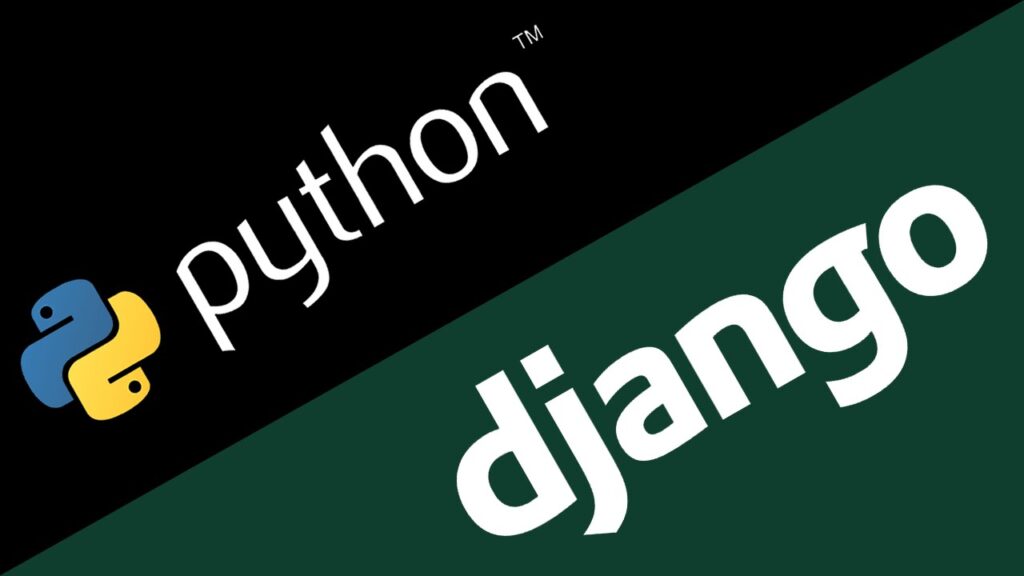 90378 28292
90378 28292

What is Django?
Django is a high-level Python web application framework that enables rapid web application creation. It accomplishes this through a pragmatic, much simpler design that is simple to use (in contrast to other frameworks), making it a common choice among web developers.
It is a backend framework used to resolve issues of connectivity with databases, other server problems, SEO solutions, and so on so that a web developer doesn’t have to write the same code for each website’s related modules (like database connectivity, admin interface). The Django platform provides all of the features in the form of web applications. You simply import such applications as needed, allowing you to focus on the specific application of your website rather than dealing with all of these backend issues.
Django was founded in 2003 by two web developers working at the Lawrence Journal-World newspaper, Adrian Holovaty and Simon Willison. In July 2005, it was made available to the public under the BSD license. Django was created because it inherited Python’s “batteries-included” approach and includes pre-made modules and applications for basic web development tasks such as user authentication, models, paths, and views, an admin interface, robust protection, and support for multiple database backends.
Why do you learn Django?
Before we learn any technology, we should understand why we should learn it. Django has a lot of features and is a future-oriented emerging technology. It is worthwhile to learn Django since it is built on Python, which is a very versatile language that will also be used extensively in the future.
Some important reasons to learn Django include:
I. Django has Evolved Over Time
Django has a lot of features since its release, and it is still going strong after more than a decade in the industry. It’s been a long time, and there have been many releases during that time. Django has resolved a lot of security problems and added a lot of functionality, so this time frame accounts for Django’s stability and a lot of new features.
ii. Open-Source Technology
Django is an open-source technology, which may mean that the documents aren’t given the attention they deserve, but this isn’t the case with Django. Django has excellent documentation since its introduction in 2005, and it is still well maintained, implying that at the time of release, it was the only system with excellent documentation.
iii. One of the Best Software Communities in the World
The Django framework group is one of the best out there, as they support all projects and respond to all queries in a helpful manner. That is one of the reasons why the Django ecosystem is rapidly expanding, and as a result, more and more people are migrating to Django, which will be used more widely in the future.
iv. Django has Lots of Pre-Made Apps
Django has a range of packages that can help you solve your problems quickly. These packages are easy to use,well-maintained documentation, allowing for rapid growth.
Features of Django Framework
i. Excellent Documentation
Despite being an open-source project, Django offers excellent documentation, which is often up to date by Django developers. It was one of the key features that set Django apart from other open-source projects when it was first released, and it has only gotten better over time.
ii. Highly Scalable
When using any technology on larger projects with a broad scope, scalability is a critical consideration. Django can run on any hardware you throw at it while still being able to build on smaller systems. It’s built on a “share-nothing” architecture, which means you can add hardware at any level, including database, server, network, and cache servers.
iii. Resolves Security Issues
Django fixes several security problems that exist in PHP frameworks by design.
Django accomplishes this by dynamically creating web pages and using templates to send data to web browsers via direct internet access.
iv. Utilizes SEO
SEO stands for “Search Engine Optimization,” which is a method of the quantity and consistency of traffic to your website by using natural search engine results.
Advantages of Django
i. Loose Coupling
The Django framework is loosely coupled but closely bound, so different layers of the framework do not need to “know” about each other unless it is absolutely necessary. So that Django has a security advantage over other systems.
ii. Lesser Code
Django takes full advantage of pre-written apps and thus has much less effort to write code.
iii. Doesn’t Repeat
Multiple copies of something take up more space and have less flexibility, and on the web, the bulkier code is, the more bandwidth it consumes from the end-user.
iv. Consistency
The key function of web applications is to act as intermediaries between various technologies. Furthermore, the system is consistent at all levels and operates in a consistent manner. Even if the model is too large or the project is small.
v. Versatile
Django effectively completes all tasks such as content management, scientific computing networks, and analytic computing.
Best Python Django Training in Kochi
If you are looking for a place to learn python programming and, acquire more prominent knowledge in Python Django Framework. Blue shell tech is the right place for you. Blue shell Tech provides the best Python Training in Kochi.
